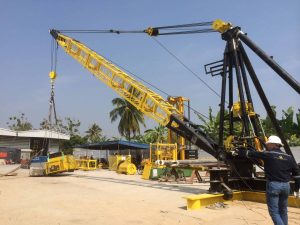Semi-trailers are a vital part of the logistics and transportation industry, facilitating the movement of goods across cities, countries, and continents. These vehicles are versatile, capable of carrying a wide range of cargo, from perishable food items to heavy machinery. Understanding what semi-trailers transport can provide insight into their importance in global trade and economy.
Dry Goods
General Merchandise
Semi-trailers often transport general merchandise, including electronics, furniture, clothing, and household goods. These items require careful handling and protection from the elements, making dry vans the perfect option. For example, electronics such as laptops and smartphones need secure packaging and stable conditions to prevent damage during transit.
Food and Beverages
Non-perishable food items and beverages are commonly transported in dry vans. This category includes canned goods, packaged snacks, bottled drinks, and bulk food items like rice and flour. The key parameters for transporting these goods include ensuring a dry, pest-free environment and maintaining the integrity of the packaging to prevent contamination.
Refrigerated Goods
Perishable Foods
Perishable foods, such as fruits, vegetables, dairy products, and meats, require refrigerated or “reefer” semi-trailers for transport. These trailers maintain specific temperatures to ensure food safety and quality over long distances. For instance, meat must be kept at or below 0°C (32°F) to prevent bacterial growth, while dairy products are typically stored at 4°C (39.2°F) to maintain freshness.
Pharmaceuticals
Pharmaceuticals, especially vaccines and certain medications, need strict temperature control, sometimes as low as -70°C (-94°F), to preserve their efficacy. The transport of pharmaceuticals not only demands precise temperature settings but also security measures to protect these high-value goods from theft or tampering.
Heavy Machinery and Construction Materials
Semi-trailers are essential for transporting heavy machinery such as excavators, bulldozers, and cranes, as well as construction materials like steel beams, concrete pipes, and lumber. These items are often oversized and require special permits for transport. The cost and efficiency of transporting heavy machinery depend on the distance, the size and weight of the cargo, and the specific equipment needed for loading and unloading. For example, transporting a 30-ton excavator over 500 miles can cost between $1,500 to $3,000, depending on fuel prices and route specifics.

Hazardous Materials
Hazardous materials, including chemicals, flammable liquids, and toxic substances, require specialized semi-trailers equipped with safety features to prevent leaks, spills, or accidents during transport. Transporting these materials involves strict adherence to safety regulations and guidelines, including proper labeling, containment, and emergency response plans. The cost of transporting hazardous materials is significantly higher due to these additional requirements, with prices varying based on the type of material, distance, and necessary safety measures.
Bulk Liquids
Tanker semi-trailers transport bulk liquids such as gasoline, diesel, chemicals, and edible oils. These trailers must be designed to prevent leaks and spills while accommodating the liquid’s movement during transport. The efficiency and safety of transporting bulk liquids depend on the tanker’s design, material quality, and maintenance. For example, a stainless steel tanker with a capacity of 9,000 gallons can transport petroleum products with minimal risk of contamination or leaks, provided it undergoes regular inspections and maintenance.
In conclusion, semi-trailers play a crucial role in the global supply chain, moving goods that are essential for everyday life and the economy. The versatility of semi-trailers allows them to carry a wide range of cargo, from dry goods to specialized items requiring temperature control or secure transport. The efficiency, cost, and safety of semi-trailer transport depend on various factors, including the type of cargo, distance, and specific transportation requirements.
